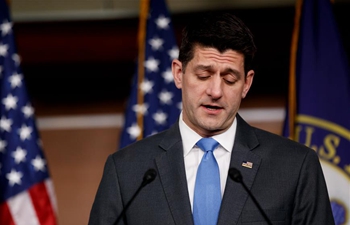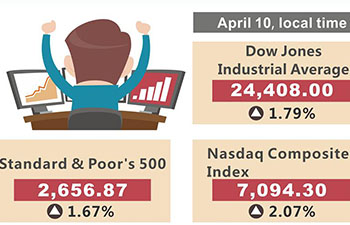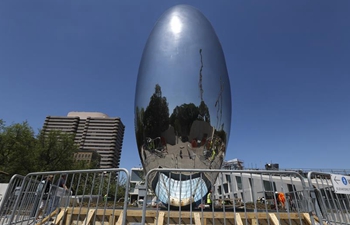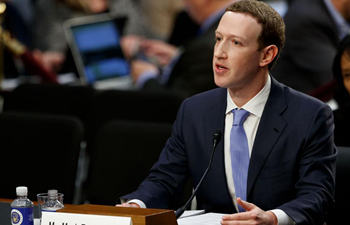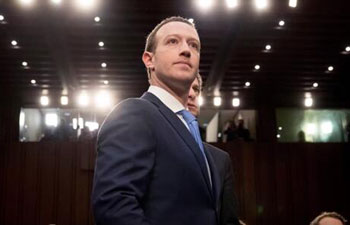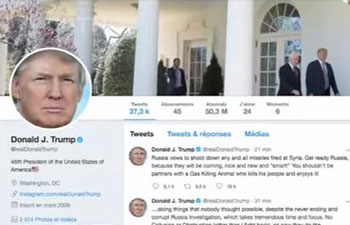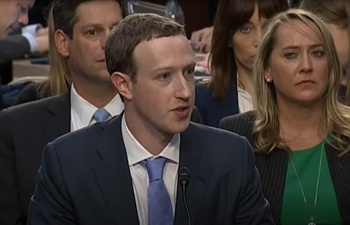LIMA, April 11 (Xinhua) -- The future of U.S.-Latin American relations, measures against corruption, and the Venezuelan crisis will be priorities at the Summit of the Americas to be held on April 13-14 in Peru's capital Lima.
U.S.-LATAM TIES
The White House has said U.S. President Donald Trump canceled the planned visits to Peru and Colombia so as to stay focused on issues related to the alleged recent chemical weapon attack in Syria. On behalf of him, Vice President Mike Pence will attend the Americas summit.
Since Trump took office, bilateral ties between the United States and several Latin American nations have taken a turn for the worse, said observers.
Trump raised tensions with neighboring Mexico by announcing the construction of a border wall, deploying the National Guard to the border area and threatening to withdraw from the North American Free Trade Agreement (NAFTA).
He froze the thawing of ties with Cuba, reinstating restrictions on travel and some business activities with the Caribbean island state.
Opposing the creation of the National Constituent Assembly in Venezuela to enable constitutional changes and its decision to advance presidential elections, Washington imposed financial sanctions against Caracas and several top officials, including President Nicolas Maduro.
Different views in the hemisphere are bound to clash at the upcoming summit, according to Cuban political observer Iroel Sanchez.
"Indisputably, the outlook of regional integration is going to confront that of the U.S. hegemony," said Sanchez.
VENEZUELA ON THE AGENDA
Venezuela poses a complex problem in Latin American politics.
Maduro is not expected to attend the hemispheric gathering because Lima withdrew its invitation of the Venezuelan head of state in February.
It was a decision backed by the Lima Group of Latin American countries launched in August 2017 to seek a peaceful solution to the Venezuelan crisis, but has been criticized by countries including Bolivia, Uruguay, Cuba and Nicaragua.
Uruguayan Foreign Minister Rodolfo Nin Novoa in late March called on Lima to reconsider its decision, saying the summit host did not have the "faculty" to "decide who it welcomes and who it doesn't."
Uruguayan President Tabare Vazquez addressed a letter to his Peruvian counterpart asking for re-inviting Maduro. "Disputes are resolved through frank dialogue and the problems of democracy are resolved with more democracy," he wrote.
Bolivian President Evo Morales also wrote a letter, saying barring Maduro set a bad precedent.
COMBATING CORRUPTION
The tide against corruption in Latin America reached a peak earlier in April when Brazil's ex-president Luiz Inacio Lula da Silva was forced to turn himself in to serve a 12-year sentence for profiting from corruption schemes.
Before that in late March, Peru's then President Pedro Pablo Kuczynski resigned ahead of an impeachment vote in parliament prompted by his alleged bribe taking.
Latin American countries need to strengthen their institutional leadership in fighting corruption, said Peruvian sociologist Ruben Ticona, a professor at the National University of San Marcos.
"Unfortunately, history and recent experience reveal a political class that is not up to the ... challenges of today's society," said Ticona.
Yadira Galvez, of the National Autonomous University of Mexico, said, "corruption has become more relevant in recent years in the region, it has become a phenomenon that is growing and affecting the political and economic systems, and even the sports and social systems."
She believes that much is yet to be done in fighting corruption in the continent, including cultural changes as well as promoting mechanisms to increase transparency and the civil society's access to information.







